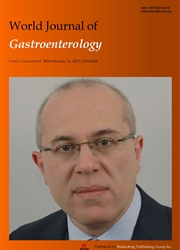

 中文摘要:
中文摘要:
直肠癌诊疗技术的发展延长了患者的生存时间,各种保肛手术的广泛应用减少了永久性造口的比例,这使得患者术后的肠道功能与生活质量成为新的热点问题。在直肠癌低位前切除术后,25%~90%的患者会出现不同程度的肠道功能异常,表现为便急、便频、排空障碍和大便失禁等,这一系列症候群被称之为低位前切除综合征。严重的低位前切除综合征显著影响患者的生活质量。然而该疾病目前在国内尚未得到足够的认识,亦未建立起规范的防治体系或诊治指南。本文就低位前切除综合征的理论基础、诊断要点和防治措施进行梳理,以期为直肠癌术后肠道功能的改善与研究提供借鉴。
 英文摘要:
英文摘要:
Advances in the management of rectal cancer have contributed to an improvedsurvival and increasing use of sphincter-preserving resection in the last decades, which makes the issue ofpostoperative bowel dysfunction and quality of life draw more concerns. It is estimated that 25%~90% of thepatients undergoing low anterior resection for rectal cancer will experience postoperatively a constellation ofsymptoms including fecal urgency, increased stool frequency, bowel fragmentation, emptying difficulties andincontinence, collectively referred to as the low anterior resection syndrome (LARS). Severe LARS is a major problem with an immense impact on patients? quality of life. However, there is deficient awareness regardingthe concept of LARS, as well as the strategy of prevention and treatment in China. In this review, we aim tosummarize the pathophysiology, diagnosis and key points of prevention and treatment for LARS, providingguidance for clinical practice and future study.
 同期刊论文项目
同期刊论文项目
 同项目期刊论文
同项目期刊论文
 期刊信息
期刊信息
